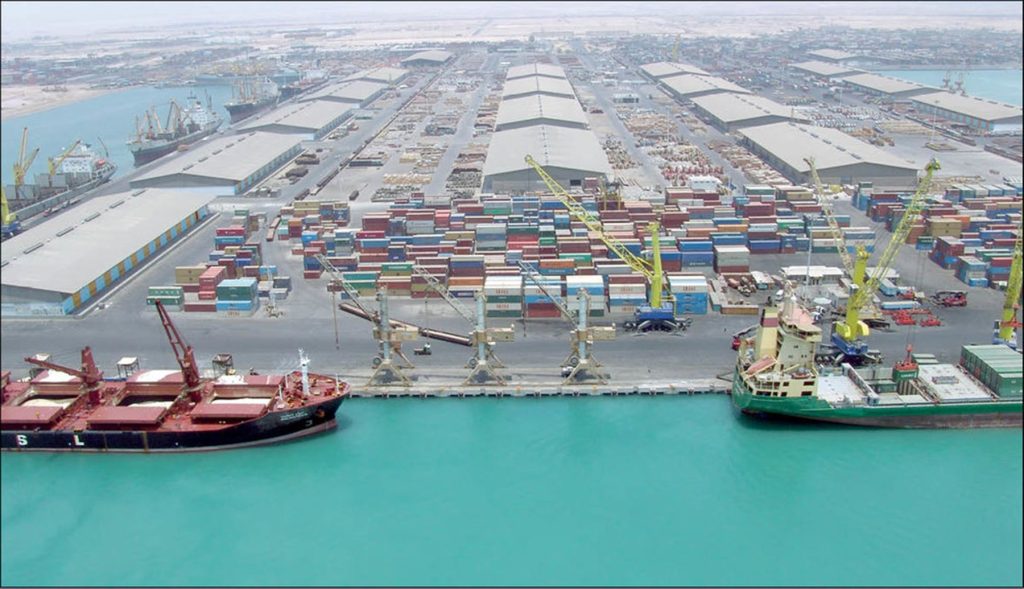Iran-Israel Conflict: Exporters Advocate for Immediate Transition to Chabahar Port

Amid rising tensions in the Iran-Israel conflict, Indian exporters are advocating for a strategic shift in cargo operations from Iran’s Bandar Abbas port to the India-managed Chabahar port. This recommendation comes as concerns grow over potential disruptions that could severely affect trade routes to Afghanistan, Central Asia, and Russia. A high-level meeting convened by the Indian commerce ministry highlighted these issues, emphasizing the need for urgent exploration of alternatives to ensure the stability of trade in the region.
Concerns Over Regional Stability
The ongoing conflict between Iran and Israel has raised alarms about the stability of maritime routes, particularly the Strait of Hormuz. This narrow waterway is crucial for global oil trade, handling nearly 20% of it, and is vital for India, which relies on it for over 80% of its energy imports. Although the Bandar Abbas port remains operational, exporters fear that any escalation in hostilities could lead to blockades, significantly impacting exports not only to Iran but also to neighboring regions. An industry official noted that if the port ceases operations, it would disrupt trade with Afghanistan and Central Asia. The urgency of the situation has prompted calls for immediate discussions with Chabahar port authorities to assess its capacity for handling increased cargo.
Rising Freight Costs and Trade Impact
Exporters are also grappling with a sharp increase in freight charges, which have surged significantly in recent weeks. Air freight rates have risen by 15%, while ocean freight to Europe and Mediterranean ports has increased by $1,000 per twenty-foot equivalent unit (TEU). The cost of transporting a 20-foot container has also escalated by $500 to $600. These rising costs have led many buyers to pause orders, and exporters are delaying shipments due to fears of goods becoming stranded at ports, which could result in heavy demurrage charges. The Federation of Indian Export Organisations (FIEO) has acknowledged these challenges and is set to consult with Chabahar port authorities to explore potential solutions.
Declining Trade Figures
The conflict has already had a noticeable impact on India’s trade with Israel, with exports dropping from $4.5 billion in the fiscal year 2024 to $2.1 billion in fiscal year 2025. Imports from Israel have also seen a decline. Trade with Iran remains stagnant at $1.4 billion, but exporters are concerned that the ongoing conflict could further jeopardize these already fragile trade ties. Reports indicate that basmati rice exports to Iran have halted, and shipping costs to the Middle East have become prohibitively expensive. If access to the Strait of Hormuz is compromised, India may need to consider alternative routes through Fujairah port in the UAE or ports in Oman.
Government Response and Future Considerations
In response to these concerns, Commerce Secretary Sunil Barthwal has assured stakeholders that the feasibility of shifting consignments to Chabahar will be thoroughly examined. He emphasized the importance of closely monitoring freight and insurance rates while exploring all possible alternatives as the situation develops. The government is committed to ensuring that trade remains resilient in the face of geopolitical challenges, and discussions with relevant authorities will continue to identify viable solutions for exporters navigating this complex landscape.
Observer Voice is the one stop site for National, International news, Sports, Editor’s Choice, Art/culture contents, Quotes and much more. We also cover historical contents. Historical contents includes World History, Indian History, and what happened today. The website also covers Entertainment across the India and World.
Follow Us on Twitter, Instagram, Facebook, & LinkedIn

